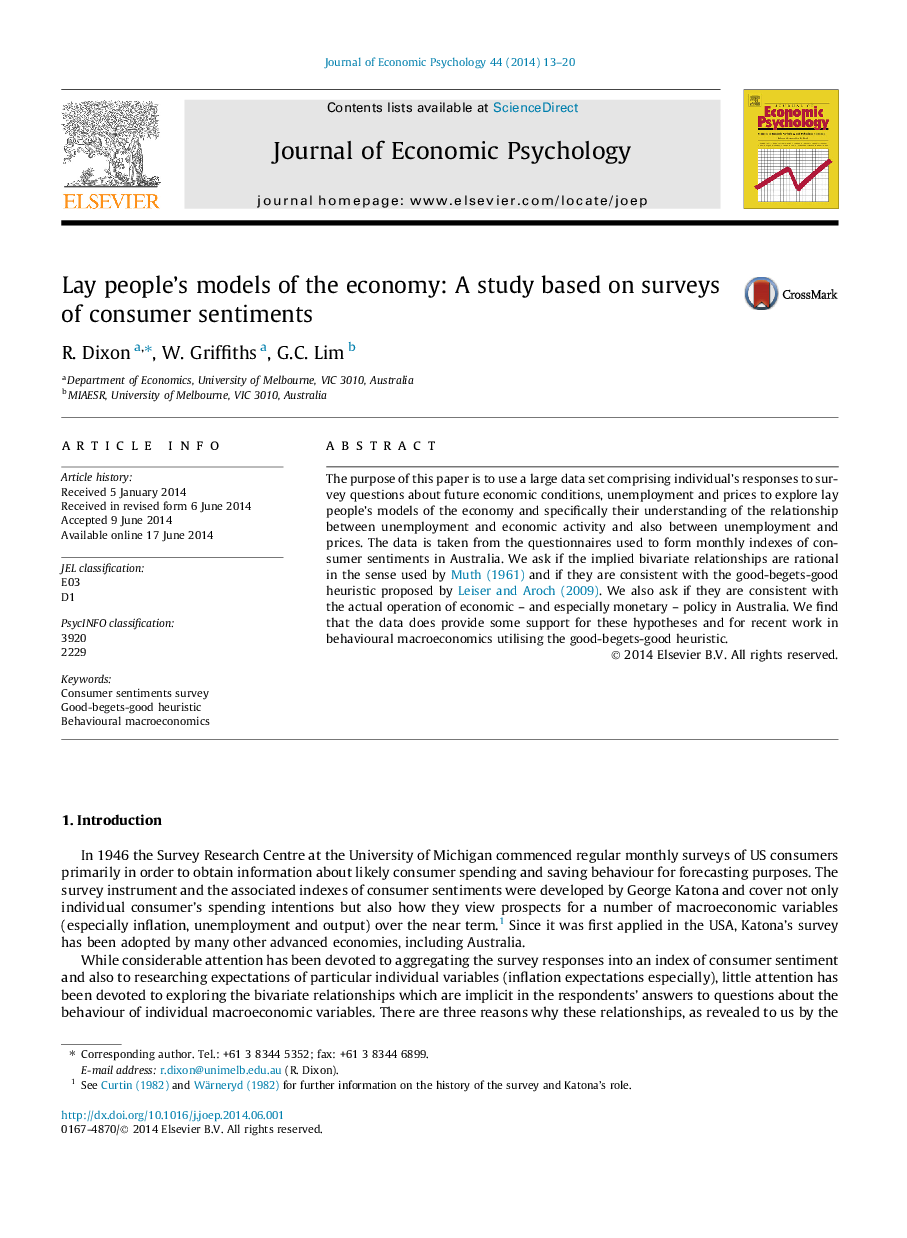| Article ID | Journal | Published Year | Pages | File Type |
|---|---|---|---|---|
| 884921 | Journal of Economic Psychology | 2014 | 8 Pages |
•Examines lay people’s models of the economy using data from consumer surveys.•It would appear that lay people form expectations as if they are aware of Okun’s law.•But do not form expectations as if they are aware of the Phillips relation.•Evidence is consistent with Leiser and Aron’s good-begets-good heuristic.•Findings also support recent work in the area of behavioural macroeconomics.
The purpose of this paper is to use a large data set comprising individual’s responses to survey questions about future economic conditions, unemployment and prices to explore lay people’s models of the economy and specifically their understanding of the relationship between unemployment and economic activity and also between unemployment and prices. The data is taken from the questionnaires used to form monthly indexes of consumer sentiments in Australia. We ask if the implied bivariate relationships are rational in the sense used by Muth (1961) and if they are consistent with the good-begets-good heuristic proposed by Leiser and Aroch (2009). We also ask if they are consistent with the actual operation of economic – and especially monetary – policy in Australia. We find that the data does provide some support for these hypotheses and for recent work in behavioural macroeconomics utilising the good-begets-good heuristic.
